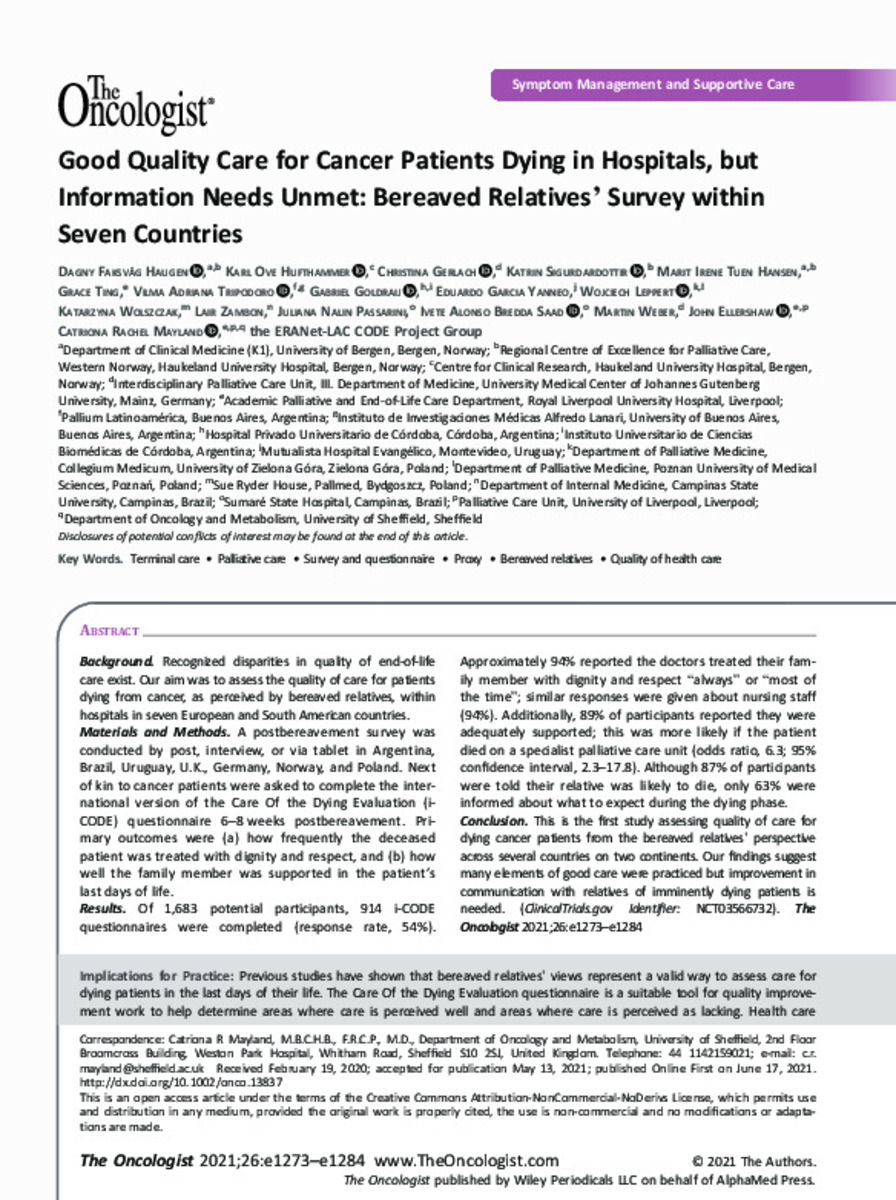Good Quality Care for Cancer Patients Dying in Hospitals, but Information Needs Unmet: Bereaved Relatives’ Survey within Seven Countries
Palabras clave :
Materias Investigacion::Ciencias de la Salud::Oncología
Terminal care
Palliative care
Survey and questionnaire
Proxy
Bereaved relatives
Quality of health care
Fecha de publicación :
2021
Editorial :
Wiley Periodicals LLC
Nota:
This is an open access article under the terms of the Creative Commons Attribution-NonCommercial-NoDerivs License
Cita:
Haugen, D.F. (Dagny Faksvåg); Hufthammer, K.O. (Karl Ove); Gerlach, C. (Christina); et al. "Good Quality Care for Cancer Patients Dying in Hospitals, but Information Needs Unmet: Bereaved Relatives’ Survey within Seven Countries". The Oncologist. 26, 2021, e1273 - e1284
Aparece en las colecciones:
Estadísticas e impacto
0 citas en

0 citas en

Los ítems de Dadun están protegidos por copyright, con todos los derechos reservados, a menos que se indique lo contrario.







